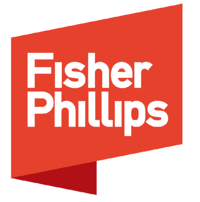READ TIME: 4 MINUTES
Recently, the Departments of Labor, Treasury, and Health and Human Services (the “Departments”) released new frequently asked questions (FAQs) on the No Surprises Act and the Transparency in Coverage final rules, giving employers more guidance and clarity around health plan out-of-network providers and fee disclosures.
Under the Affordable Care Act (ACA), out-of-pocket expenses related to essential health benefits are capped. However, these caps do not apply to out-of-of-pocket amounts related to out-of-network services and items, even if those services and items are covered by the employer-sponsored health plan.
On December 27, 2020, the No Surprises Act, which was part of the Consolidated Appropriations Act, 2021 (CAA 21) was signed into law, with the primary goal of prohibiting surprise billings practices for both insured and self-funded health plans.
Under the newly released FAQs, which clarify the No Surprises Act, the Departments addressed three areas.
- Out-of-pocket maximum and facility fees rules under the No Surprises Act
The No Surprises Act restricted these out-of-pocket cost-sharing amounts for both out-of-network emergency and air ambulance services as well as out-of-network services provided at in-network facilities (such as radiology services).
For these costs, the No Surprises Act stated that the amounts must be calculated as if the services and items were provided by in-network facilities. Additionally, the amounts must count toward both the participant’s in-network deductibles and out-of-pocket maximums.
- Definitions of out-of-network providers and facilities and facility fees
Under the No Surprises Act, an out-of-network provider or facility is defined as one that does not have a direct or indirect contractual relationship with the employer’s health plan (also called “non-participating providers or facilities).
However, some employers contract with certain health care providers or facilities without treating them as in-network for purposes of out-of-pocket maximums. In the FAQs, the Departments clarified that:
- Cost-sharing for any services provided by non-participating providers or facilities (including air ambulance providers) is considered to be out-of-network cost sharing for purpose of the maximum out-of-pocket limit under the ACA.
- Alternatively, cost-sharing for any services provided by participating providers or facilities (including air ambulance providers) is considered to be in-network cost sharing for purpose of the maximum out-of-pocket limit under the ACA. Participating employers are those with a direct or indirect contractual relationship with the employer’s health plan.
- Additionally, if an employer health plan has a contract with providers and facilities (including air ambulance providers), but these providers and facilities are still considered to be out-of-network, then these providers and facilities must be considered as “participating” for purposes of the No Surprises Act and in-network for purposes of the ACA’s maximum out-of-pocket limit.
- Future regulations addressing facility fees
Finally, the Departments expressed concern over the rising costs of facility fee expenses covered by the ACA’s Transparency in Coverage rules. Although acknowledging that enforcement of facility fees under the No Surprises Act has been deferred to a future date, the Departments clarified that facility fees should be included in the “items and services” definition for both the Transparency in Coverage final rules and the No Surprises Act.
In other words, this means that these fees (when covered) should be included in the machine-readable files of the employer’s health plan. Additionally, they should be included in any uninsured and insured good faith estimates as well as insureds’ advanced explanation of benefits once fully implemented.
With this additional guidance and clarification from the Departments, employers should connect with their third-party or claims administrators, confirming that providers and services are treated properly under both the No Surprises Act and the Transparency in Coverage rules.
This information has been prepared for UBA by Fisher & Phillips LLP. It is general information and provided for educational purposes only. It is not intended to provide legal advice. You should not act on this information without consulting legal counsel or other knowledgeable advisors.

